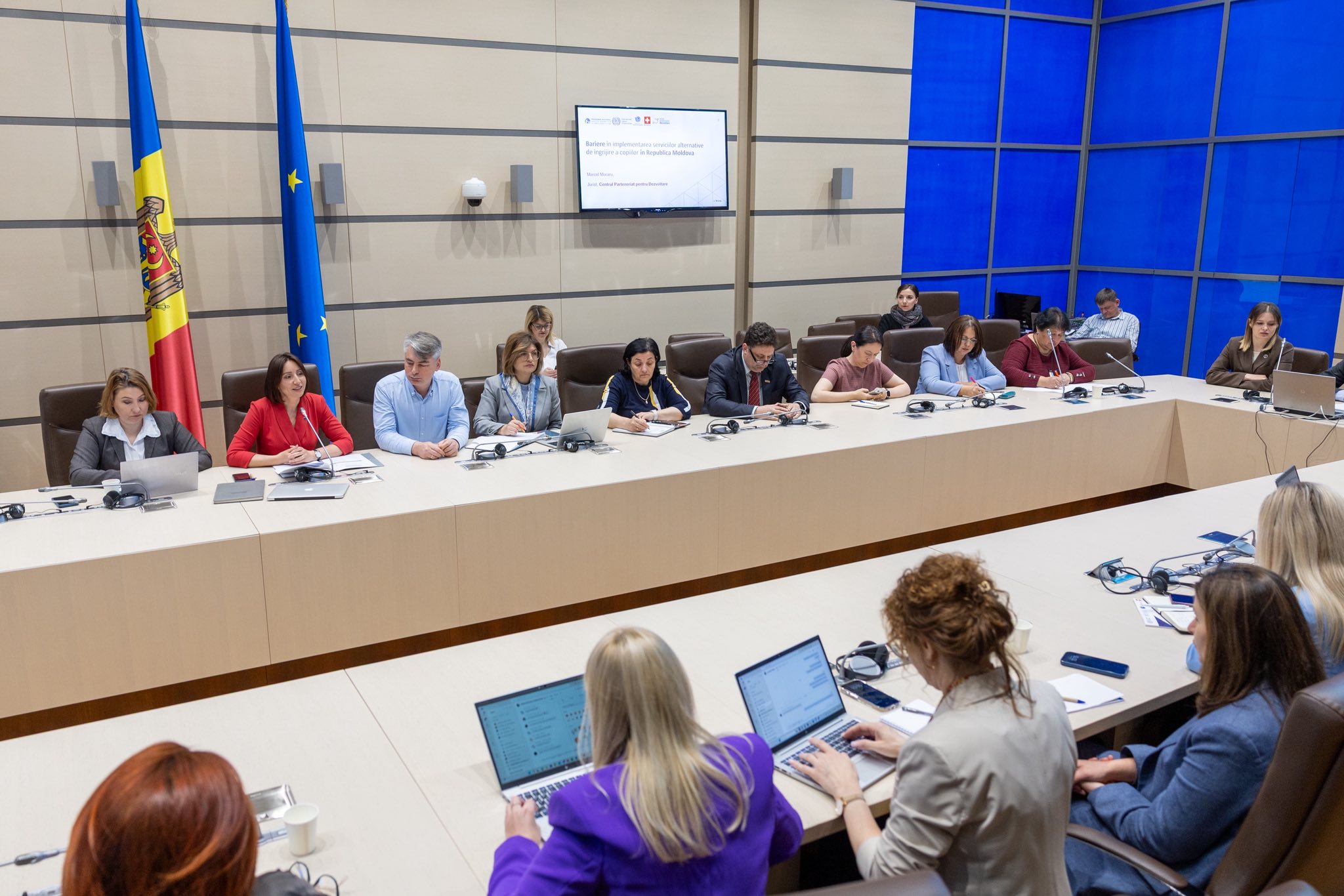The high costs of establishing family-type alternative childcare services, limited access to professional training opportunities in this field, and the lack of effective partnership mechanisms between local public authorities and employers are the main barriers hindering the development and accessibility of these services in the Republic of Moldova.
These issues were addressed during public hearings organized by the Parliamentary Committee on Social Protection, Health, and Family of the Republic of Moldova on May 20, during which a report on this topic was presented.
The event brought together members of parliament, representatives of the Economic Council to the Prime Minister, central public authorities, educational institutions, international organizations, development partners, and members of civil society. From the National Trade Union Confederation of Moldova (CNSM), Vice President Lilia Franț and Angela Otean, President of the CNSM Women’s Commission, participated.
In her speech, Lilia Franț welcomed the efforts of the authorities and civil society in promoting alternative childcare services, while emphasizing the need to continue these initiatives. She announced that CNSM would intensify public awareness activities, including in rural areas, to increase understanding of the benefits and opportunities offered by these services.
The CNSM Vice President highlighted the importance of subsidizing childcare services for employers and expanding these services in the districts to support women returning to the labor market. She advocated for ongoing support programs to encourage the participation of both young men and women in these services.
At the same time, Lilia Franț mentioned a good practice example — the inauguration, with the support of the International Labour Organization (ILO), of a childcare supervision space within the House of Trade Unions in 2024. This initiative reflects CNSM’s commitment to work-life balance and to the development of community childcare services, whether public or private.
The report presented in Parliament highlights the need to improve the legislative framework concerning alternative childcare services, aiming for more effective implementation and genuine support for families.
Following the discussions, several proposals were formulated to improve Law No. 367/2022 on alternative childcare services, including:
• Expanding the network of services: nurseries, qualified nannies, childcare spaces in workplaces
• Supportive policies for employers: flexible work programs, gradual reintegration, encouraging fathers to take on family responsibilities
• National campaigns to shift public mentality and promote the fair sharing of parental responsibilities
• Strengthening the capacity of public institutions to support women returning to the labor market
According to a study conducted by the ILO, over 130,000 women in the Republic of Moldova are out of the labor market due to family responsibilities. Although they have a higher level of education than men, mothers face systemic barriers: lack of childcare services, limited employer support, and rigid social norms. As a result, only 37% of women with young children are employed, while only 5% of fathers take parental leave, and 70% of mothers report feeling exhausted.

